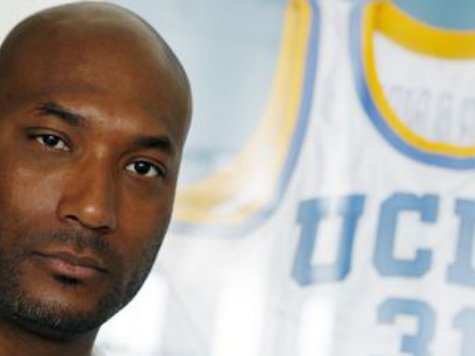Beneath the radar, a California court is set to rule June 20th in the O’Bannon Case, perhaps changing college sports dramatically. And by dramatically, I mean with ramifications far beyond what anyone is publicly considering. This could be one of the all time “be careful what you wish for” moments among sports journalists, participants and fans.
Former UCLA basketball player Ed O’Bannon has alleged that the NCAA profits from athletes without compensating them. On the surface, that sounds reasonable, as the NCAA does derive huge TV rights fees from college basketball, including the NCAA Tournament. And in the technical sense, the players do not get paid. As such, the knee jerk reaction – which will no doubt be the consensus at outlets filled with liberal wannabes like, say, ESPN, will be to support the suit.
After all, the “NCAA is getting rich,” so why shouldn’t the players share in that? Well, perhaps they should, but the arguments need to be discussed in terms of reality and proper perspective before we reach such a conclusion.
The first thing to understand is that this particular suit does not contemplate big time football, which is far and away the driver of college athletic budgets both in terms of revenue and expenses. In other words, this suit covers only a financial rounding error in the big picture, since it does not impact the conferences’ football TV contracts and the big one, the BCS TV contract.
That said, let’s assume for a second that O’Bannon wins the NCAA suit, and precedent is set for a larger “pay the players” movement across all college sports.
Can’t you just hear every little liberal sports reporter, none of whom have any business or economic background, cheering loudly? But wait….
If we peak inside Pandora’s Box for a second, we’ll find out that there are a few big problems with this feel-good story in terms of practicality, and beyond that, there are largely ignored nagging fundamentals as well. For instance, do the players really not get paid? I mean, tuition, books, room and board – and by the way, the rooms are the best rooms and the board is the best board in big time programs – is worth a pretty good amount of change. These perks are paid for by boosters endowments, supplemented by the athletic department’s operating budgets. In a purely economic sense, these investors should be due some of this as well. That could get very sticky.
Then there’s the question of who/what the NCAA is in the first place – you know – the entity that is getting so rich. The NCAA spends a lot of money on swimming meets, track meets, gymnastic competitions and the like – all sports that generate virtually no income. The same is true for each conference, and for each school as well. UCLA, like all schools, needs to make money off a couple of programs because the majority of their programs lose money. Do we get rid of the non-revenue sports to pay the players in only two? Maybe three?
This is an even more difficult question at small schools in big time conferences – like Duke, Wake Forest, Rice, Baylor, Vanderbilt, Boston College, and even Miami (yes, a small private school) – schools that probably lose money on football. In a pay-for-play universe, you can probably waive good-bye to all such schools in football. Something to think about.
Then there is the issue that no one questions – that I will now – and that is the question of whether the players really do generate the money in the first place? Yes, I know Ed O’Bannon played at UCLA and while he was there, UCLA sold tickets, programs, TV rights and the like. But did Ed being there really add a dime to that? Wasn’t it really the name UCLA, and John Wooden, that sold those tickets and generated those TV rights? And isn’t that the case in college generally, where it’s accepted that the name on the front of the jersey is more important than the name on the back?
But this question just gets even more complicated. In the case of the “University ofs” – the big state universities, isn’t it the name association of the state itself that sells the tickets? How do we measure that? How do we contemplate that in any pay formula? Is this like Alaska, where everyone gets a refund from the state’s oil reserves?
I don’t claim to know, but I’m reminded of Jim Calhoun’s run in with the UConn faculty a few years ago, where he reminded the faculty that he earned his big money by way of basketball revenues and they didn’t. Calhoun was right, but only half right. The name UConn handed him a state full of fans before he won his first game. And when you’re talking Texas or Florida football or Kentucky or North Carolina basketball, this is even more the case.
And then let’s not forget the wonderful liberal faculties and administrators who will be cheering this, looking at this as a chance to take big time athletics down a peg or two – something they have been fantasizing about for decades. Is someone going to tell me with a straight face that the utterly failed tenure based “academy” is any less corrupt than the athletic department? I didn’t think so.
This is not to say that some aspects of college athletic economics shouldn’t be examined. It should, but it’s way more complicated than the suits getting rich while the poor kids suffer. There are many issues beyond what I mentioned here in fact. This is true of most economic issues that animate liberals in the name of “fairness.” So I advise sports fans: just be careful what you wish for. After all, where do you think the money for those nice stadiums and big marching bands and perfect turf comes from?

COMMENTS
Please let us know if you're having issues with commenting.